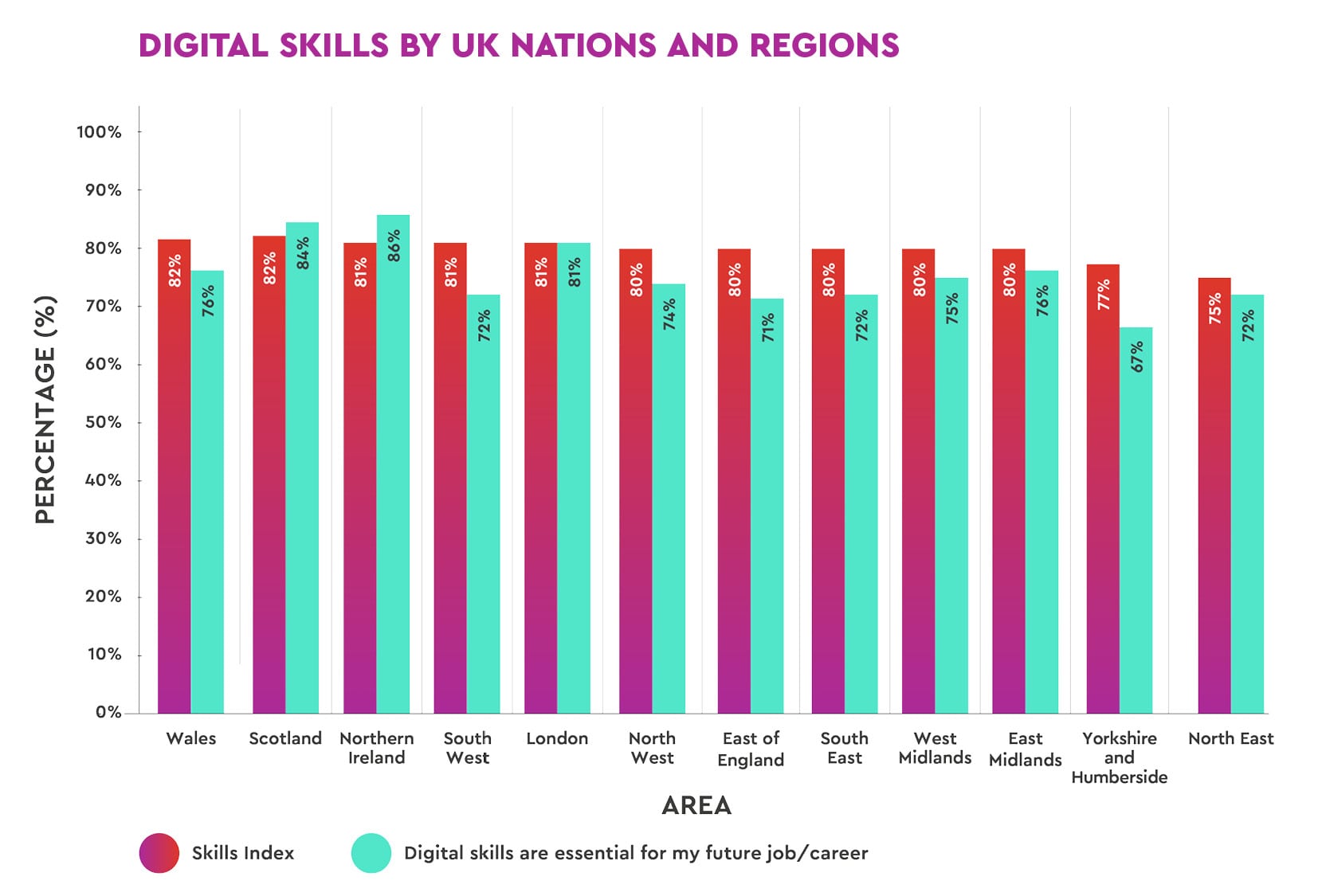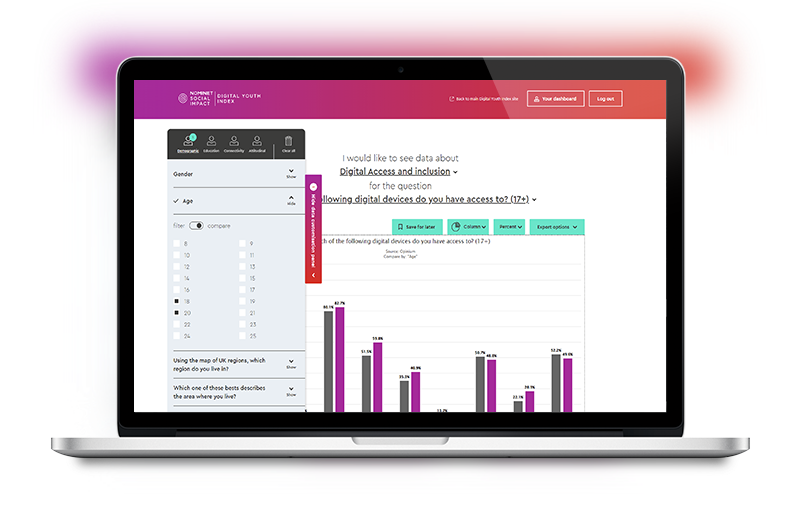The Digital Youth Index highlights the importance of digital access and inclusion for young people. Although many face challenges and threats when online, it’s an important part of their day-to-day life. But where do digital skills come in? How do young people feel digital skills will influence their future careers, and who is struggling to access sufficient digital skills training and support?
While the digital skills pillar has the highest index score (80%) of the five pillars, there are differences and inequalities in digital skills ability and career aspirations across genders, location and household situations. In this article, covering the final of our pillars, we explore some highlights from the 2022 data and research for digital skills.
Career aspirations
When it comes to pursuing a career that uses advanced digital skills, we see a similar trend in the Digital Youth Index data to the technology industry as a whole in the UK, with boys/young men more interested in a digital career (64% male vs. 47% female), and more likely to consider digital skills essential to their future career.
Only 68% of young people from low-income households (up to £20,000 per year) think digital skills are essential for their future career vs. 75%-80% from wealthier households.
Digital skills and ability
As would be expected, digital skills ability increases with age (from 68% among 8-10-year-olds to 86% among 23-25-year-olds) but there is no substantial difference in the digital skills index (ability) by gender.
There appears to be minimal difference in digital skills ability by social grade with an index score of 81% for middle-class respondents vs. 79% for working-class. However, differences become apparent when comparing the lowest and higher bands of household income with young people in households of a combined annual income of up to £20,000 per year only scoring 78% on the index compared to 86% among those whose household income is above £80,000 per year.
Regions and nations
Young people living in Northern Ireland (86%), Scotland (84%) and London (81%) are the most likely to consider digital skills as essential for their future job/career, while those living in Yorkshire and Humberside (67%) are the least likely to agree with the sentiment.
Interestingly, this aligns with where essential digital skills are highest, for example the digital skills index for Scotland is 82% while the index score for Yorkshire and Humberside is only 77%.
Aspirations for digital careers in Northern Ireland are 86% compared with Yorkshire and Humberside at 67%.
While there is also no apparent urban/rural divide when it comes to essential digital skills ability, there are differences in aspiration, with young people in urban areas more likely to consider digital skills essential to their future job or career than those from rural areas (78% urban, 74% suburban, 69% rural).
The chart below shows both digital skills and aspiration scores by nation and English regions. We can see that the majority of scores for digital skills (ability) are higher compared to aspiration scores, with the exception of Scotland and Northern Ireland. Interestingly, London has the same scores for both areas, while the South West, East of England, South East and Yorkshire and Humberside have larger gaps between digital skills and ability scores.

The North East of England (Country Durham, Tyne and Wear, Northumberland and the Tees Valley) has the lowest digital skills index score (75%). This is not surprising when considering the North East is flagged for elevated level of digital exclusion, low-income levels before housing costs and has the highest eligibility for free school meals, meaning that more needs to be done in this area to support young people in learning and applying digital skills.
Laying the right foundation for digital skills is only going to continue to be essential to future careers, and this 2022 research clearly shows that some young people require more support in this area.
You can delve deeper into these digital skills findings and explore scores and insightful data across all the pillars of the Index with our data tool.
Share this article








